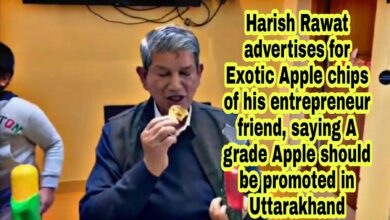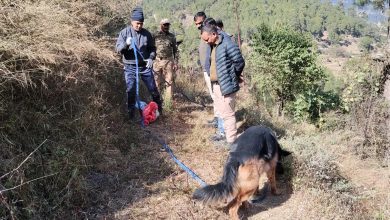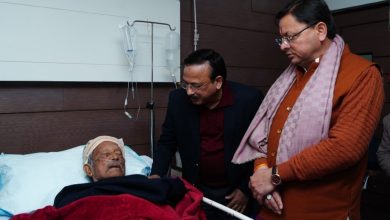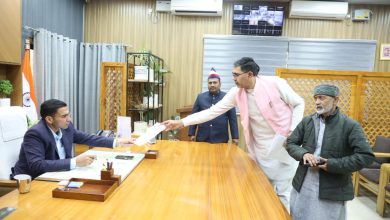Plastic waste management experts share insights during SDC Foundation’s Sustainable Development Dialogue, Understanding the 2022 Single Use Plastic Ban
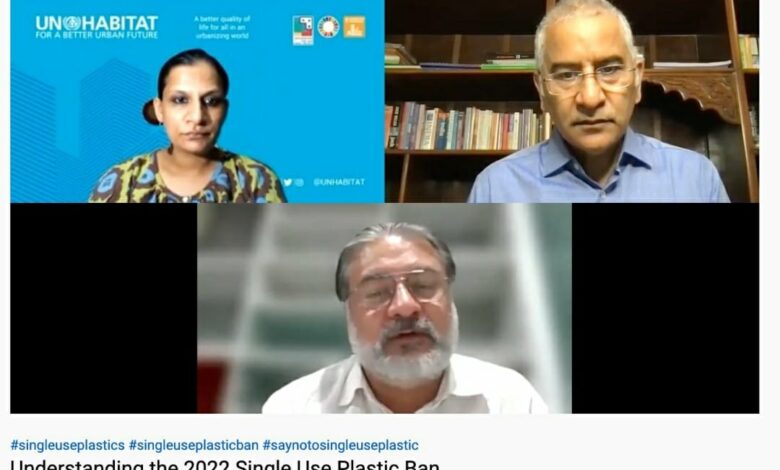
Extensive work will have to be done on alternatives, state action plans, research, recycling and public participation in single use plastic ban
Good work being done in some states, Uttarakhand needs to learn from UP and Himachal
Dehradun
To make the Single Use Plastic Ban campaign, which started from 1st July 2022 a success, states need to work extensively on alternatives, state action plans, research, recycling and public participation. Work is being done in this direction in some states of the country while many other states have a lot of catching up to do. Uttarakhand needs to learn a lot from the campaign launched in Uttar Pradesh in the matter of single use plastic ban.
This was said by experts in a virtual program Understanding the 2022 Single Use Plastic Ban organized by SDC Foundation. Anoop Nautiyal, President, SDC Foundation, interacted with Swati Singh Sambyal, Waste Management Specialist, UN Habitat India, and Gautam Mehra, Senior Technical Advisor, GIZ, at the event. This conversation has been shared on various social media platforms of SDC Foundation.
Swati Singh Sambyal, Waste Management Specialist, UN Habitat India, said that the 19 single-use plastic items that have been banned at present account for about 25 percent of the total single-use plastic waste. There are many other products that are yet not banned.
Swati said that when we move towards the single use plastic ban, then there is a need to work on its alternatives. For this research, study and work plan are needed. According to Swati, it should not happen that in the name of single-use plastic ban, we start using such options which can create bigger problems in future. It is also necessary to work out in advance about the option that we will start, how it will be collected and how it will be disposed of. She talks about making people aware to move from single use to multi use products.
Swati Sambyal also says that it is not right to set the standard of thickness of plastic bags. Standards such as less than 50 microns or less than 75 microns pose a dilemma, so plastic bags should be completely banned instead of deciding on the thickness of these bags.
According to Gautam Mehra, Senior Technical Adviser, GIZ, work has started in some states to ban single use plastic. Yellow Bags campaign has been started in Tamil Nadu and Bag ATMs are being installed in the markets. Work has also started in Himachal Pradesh while citizens are being made aware in Delhi.
Gautam said that his organization along with the state government in Uttar Pradesh ran a five-day RACE campaign on single-use plastic, which was very successful. According to Gautam, the state government organized a plastic collection competition for the municipal bodies in Uttar Pradesh. More than 700 urban local bodies of the state participated in this competition. He said that the urban development department generally stays away from such campaigns, considering it to be the work of the environment department. But, all the departments in Uttar Pradesh have been united in this matter.
Gautam says that we also get garbage in the form of packaging along with any product. By making rules, the government has put the responsibility of this waste on the producer. But, it is necessary that common people are aware of this. Giving the example of a biscuit packet, Gautam says that if we mix the packet with the rest of the waste after eating a biscuit, it does not reach the recycler. For this we have to keep such waste separately.
Anoop Nautiyal of SDC Foundation said that a lot of work still needs to be done, but the country has moved a step ahead. He said that when more than 700 municipal bodies can participate in this campaign in UP, then such a campaign can be run in 102 urban local bodies of Uttarakhand also. He expressed hope that work in this direction will start in Uttarakhand like many other states. He expected Swati Sambyal and Gautam Mehra to cooperate in such a campaign in Uttarakhand.

